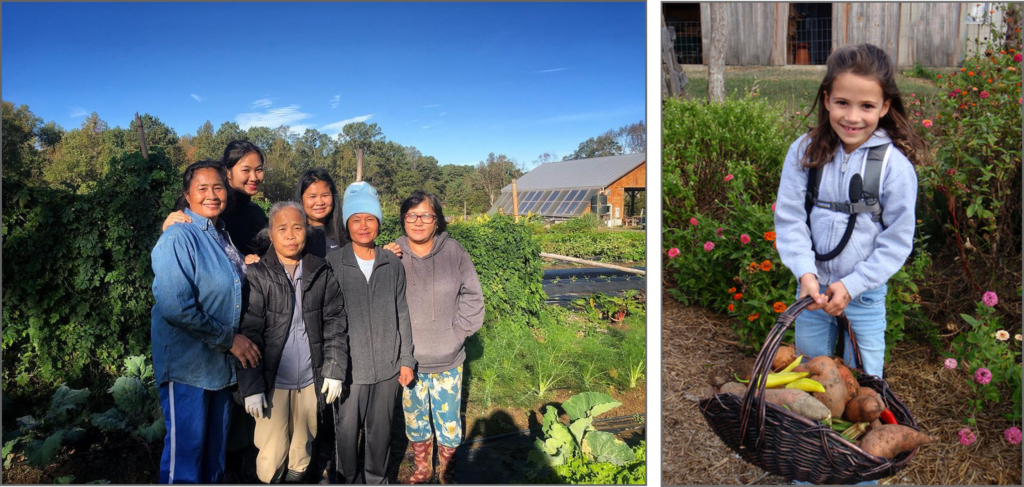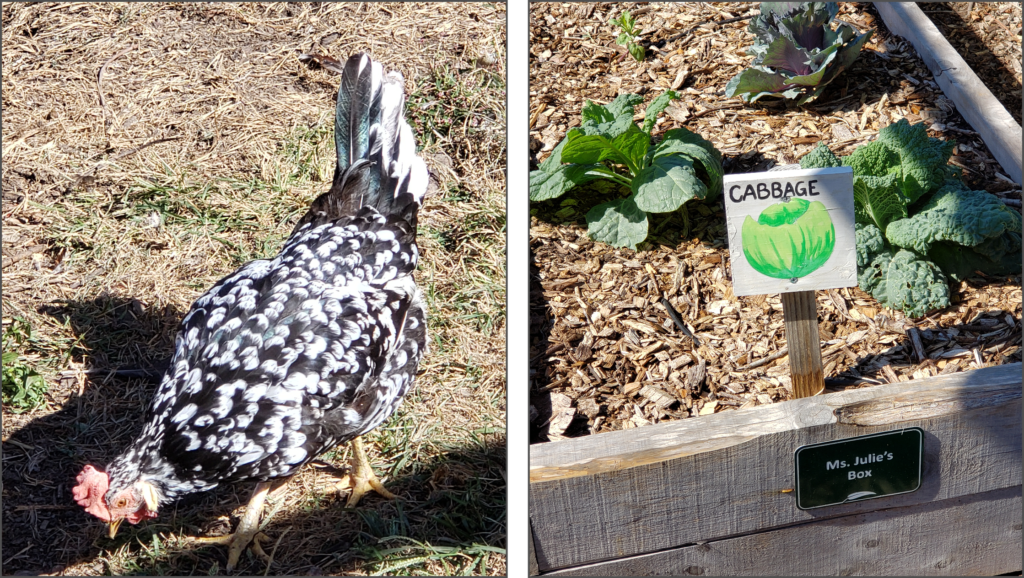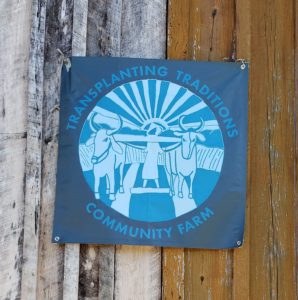Passion and Partnerships Turn a Donated Farm into a Transformative Treasure
 One of the best things about going to the annual Land Trust Alliance conference, known as “Rally,” is the opportunity to take a field trip to see projects that other land trusts are doing around the country. This year, Rally was in Raleigh, NC, and among our land trust hosts was the Triangle Land Conservancy (TLC) from Durham, NC, which offered a tour of one of its very unique properties.
One of the best things about going to the annual Land Trust Alliance conference, known as “Rally,” is the opportunity to take a field trip to see projects that other land trusts are doing around the country. This year, Rally was in Raleigh, NC, and among our land trust hosts was the Triangle Land Conservancy (TLC) from Durham, NC, which offered a tour of one of its very unique properties.
In 2007, TLC received a bequest of a 269-acre farm from the estate of Elinor Irvin, whose late husband, Logan, had been a founding member of TLC. Her will stipulated that the land be used for education and farming, so people could connect with nature and agriculture. Not being either educators or farmers, TLC went in search of partners with expertise in these areas and ultimately collaborated with two different organizations to carry out Ms. Irvin’s wishes.
1. Learning Outside
One partnership resulted from TLC helping to form and incubate a new, nonprofit organization, known as “Learning Outside.” Its mission is to provide children with quality outdoor experiences that enhance their lives and learning, instill a love of the natural world, and promote lifelong stewardship. An important focus for the organization is to serve individuals who do not have ready access to quality outdoor learning experiences. In 2018, Learning Outside served 577 local participants, including 114 who otherwise could not have attended due to cost and transportation needs.
Learning outside’s educational philosophy is this:
People learn and experience the world around them differently when they are in natural settings. Learning Outside's programs are sited at Triangle Land Conservancy's Irvin Nature Preserve, a setting ideally suited to support children’s innate curiosity about how the world works. Its diverse eco-systems engage children in meaningful interactions with the natural world and then builds on this unique relationship between individual and environment.
Learning Outside's approach integrates the arts, sciences and humanities, all with outdoor learning. We emphasize community-building and a culture that values interpersonal relationships. Our teaching style encourages individuals to learn through direct, hands-on experiences with nature.
What I found truly striking was the breadth and quality of outdoor experiences available for children on site, from hiking trails, to raised-bed gardens sized for children, to animal husbandry (kids actually learn how to care for goats and chickens).

The program also has an impressive, diversified funding base that includes individual donors, foundations, and local businesses, a key to the sustainability of any nonprofit. Learning Outside’s visionary director and co-founder, Wendy Banning, developed a short and informative video about the program, which is available at the bottom of this webpage.
2. Transplanting Traditions
 Located within the same 269-acre plot alongside Learning Outside, Transplanting Traditions provides refugee adults and youth from Burma access to land, healthy food and agricultural and entrepreneurial opportunities. The project meets this mission through intensive agricultural classroom workshops, hands-on workshops that occur bi-weekly at the farm, and marketing and business support through a CSA (Community Supported Agriculture) and area Farmers’ Markets. Transplanting Traditions also operates a young children’s program as well as refugee teen program.
Located within the same 269-acre plot alongside Learning Outside, Transplanting Traditions provides refugee adults and youth from Burma access to land, healthy food and agricultural and entrepreneurial opportunities. The project meets this mission through intensive agricultural classroom workshops, hands-on workshops that occur bi-weekly at the farm, and marketing and business support through a CSA (Community Supported Agriculture) and area Farmers’ Markets. Transplanting Traditions also operates a young children’s program as well as refugee teen program.
There are 155 refugee adults and children involved in growing healthy food on 8 acres of land that has yielded 600,000 pounds of produce and produced $473,000 in income to the refugee farmers. The video below provides a great overview of the people and programs of Transplanting Traditions.
The takeaways for me of this visit were:
- The power of partnerships on land to strengthen the community and enhance the vibrancy of the individual partner organizations.
- The importance of capacity to quality programming – there are quite a few “people” involved in making these programs go and grow. In addition, TLC has a staff member who serves as farm manager who lives on site with his family.
- The passion of the land trust staff and program directors for the work that they are doing – their enthusiasm was infectious. That is a great help in fundraising for any program.